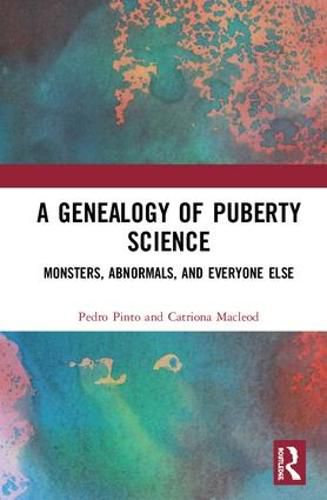Readings Newsletter
Become a Readings Member to make your shopping experience even easier.
Sign in or sign up for free!
You’re not far away from qualifying for FREE standard shipping within Australia
You’ve qualified for FREE standard shipping within Australia
The cart is loading…






A Genealogy of Puberty Science explores the modern invention of puberty as a scientific object. Drawing on Foucault’s genealogical analytic, Pinto and Macleod trace the birth of puberty science in the early 1800s and follow its expansion and shifting discursive frameworks over the course of two centuries.
Offering a critical inquiry into the epistemological and political roots of our present pubertal complex, this book breaks the almost complete silence concerning puberty in critical theories and research about childhood and adolescence. Most strikingly, the book highlights the failure of ongoing medical debates on early puberty to address young people’s sexual and reproductive embodiment and citizenships.
A Genealogy of Puberty Science will be of great interest to academics, researchers and postgraduate students in the fields of child and adolescent health research, critical psychology, developmental psychology, health psychology, feminist and gender studies, medical history, science and technology studies, and sexualities and reproduction studies.
$9.00 standard shipping within Australia
FREE standard shipping within Australia for orders over $100.00
Express & International shipping calculated at checkout
A Genealogy of Puberty Science explores the modern invention of puberty as a scientific object. Drawing on Foucault’s genealogical analytic, Pinto and Macleod trace the birth of puberty science in the early 1800s and follow its expansion and shifting discursive frameworks over the course of two centuries.
Offering a critical inquiry into the epistemological and political roots of our present pubertal complex, this book breaks the almost complete silence concerning puberty in critical theories and research about childhood and adolescence. Most strikingly, the book highlights the failure of ongoing medical debates on early puberty to address young people’s sexual and reproductive embodiment and citizenships.
A Genealogy of Puberty Science will be of great interest to academics, researchers and postgraduate students in the fields of child and adolescent health research, critical psychology, developmental psychology, health psychology, feminist and gender studies, medical history, science and technology studies, and sexualities and reproduction studies.